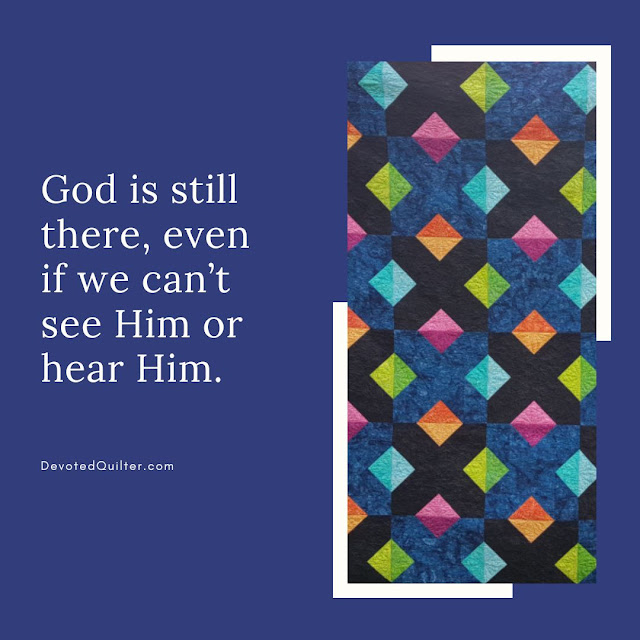Devotion for the week...
Here in Newfoundland, most people try to avoid driving on the highways after dark as much as possible because of the danger of hitting moose on the roads. This past week, though, we've had to drive home after dark twice. Saturday evening as we drove, I found myself looking off to the side a couple of times, where I knew there were pretty views, if only there was enough light for me to see them. Then I remembered this devotion I wrote back in 2015, so today seemed like a good time to share it again 😊
___________________
Last weekend we spent a day out of town visiting Paul's family and drove home after dark. As we drove down the familiar highway, I thought of all the things I wasn't able to see because of the dark. There were places along the road where I knew I should have been able to see a pond or a hill off in the distance, but instead I could only see what was illuminated by the headlights.
The experts say that babies have to learn 'object permanence' - the concept that people and things still exist even when they are hidden from sight. That's why peek-a-boo is so exciting for babies. They think we disappear and they are genuinely surprised when we reappear, until their minds begin to understand that things still exist even when they can't be seen. Understanding object permanence is why we don't panic when we go out in the dark and can't see past our lights, or why a thick fog doesn't make us think the world has vanished, even though it looks like everything is gone.
I think sometimes we would do well to focus on 'God permanence' - the concept that God continues to exist even if we can't see Him or hear Him, that He is there even if we can't pinpoint His hand working in our lives. When things go wrong, we can feel like God doesn't care, or that He's not paying attention, or we may even start to wonder if God is real at all.
It makes me think of 1 Corinthians 13:12, which says, "For now we see only a reflection as in a mirror; then we shall see face to face. Now I know in part; then I shall know fully, even as I am fully known."
Mirrors today are really clear. I can look into the mirror and see every little hair on my head, including the grey one that likes to stand straight up at the top. I can see the room behind me; everything that is within the scope of the mirror is reflected back to me just as clearly as it would look if I turned around and looked at it straight on. But the mirrors in biblical times were not quite so clear. The mirrors then were made of metal, polished so that it could reflect the image of the person using it. Though it could reflect, it wasn't like looking in mirrors that we have today. That explains why Paul wrote that now we see only as in a mirror...the reflection wasn't as clear as seeing face to face would be. What was close to the mirror (the person using it) would be most clear. Everything else would be indistinct, if it could be seen at all. In the same way, what was in our headlights was clearly visible, while what lay beyond them was invisible, even though I knew there was more out there.
I can't see God. I know that He exists, that He is there, but I can't see Him with my eyes. He isn't within the scope of my mirrors or my headlights. I can't always see what He's doing in my life, either, but that doesn't mean that He has stopped caring for me. Now we are seeing only a partial, dull reflection, but one day we will see as clearly as God sees. Then we will understand it all. And while we're waiting, we remember that He is there. That He exists and cares for us, even when He is out of sight.



